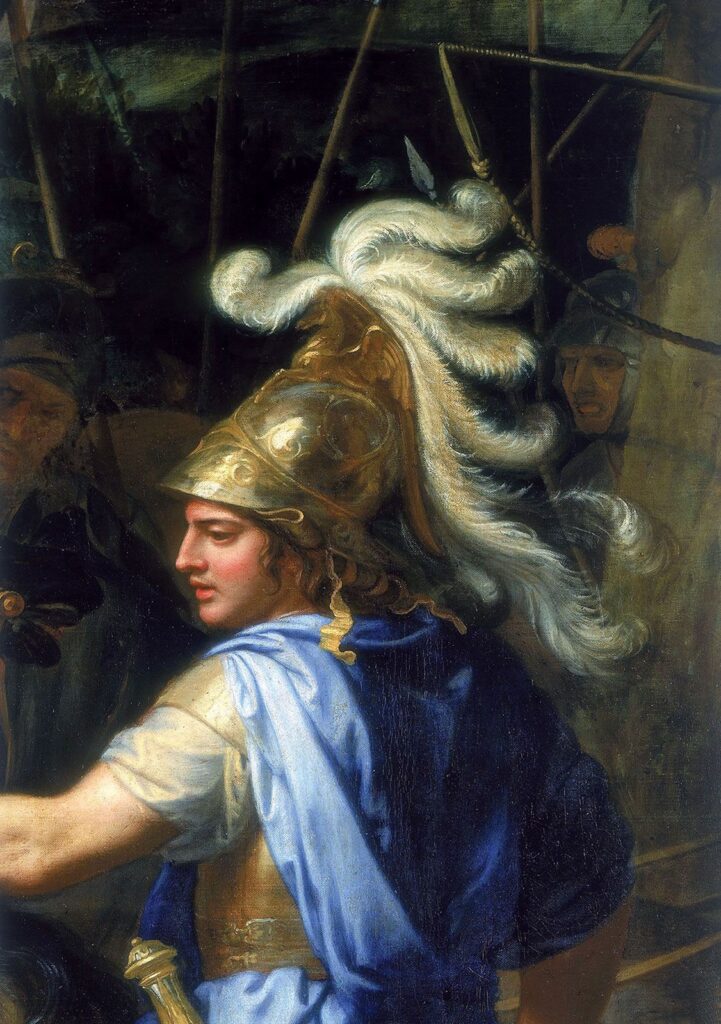Alexander the Great, also known as Alexander III of Macedon, was a renowned military commander who conquered an empire stretching from Greece to Egypt and into the Indian subcontinent during his reign from 336 BC to 323 BC. His conquests, including defeating the Persian Empire and establishing the city of Alexandria, have left a lasting impact on history. Alexander’s innovative warfare strategies, such as the use of the phalanx formation and cavalry, set him apart as a remarkable leader. His legacy as a conqueror and military strategist continues to be studied and admired, influencing future empires and leaders throughout history.
Alexander the Great’s Legacy: Conquests and Warfare Strategies
Introduction
Alexander the Great, also known as Alexander III of Macedon, was one of the most successful military commanders in history. Born in 356 BC, he ruled as the king of Macedon from 336 BC until his death in 323 BC. During his reign, he conquered an empire that stretched from Greece to Egypt and into the Indian subcontinent. Alexander’s legacy as a military leader and conqueror continues to be studied and admired to this day.
Conquests
Alexander’s conquests were some of the most extensive and impressive in ancient history. He began his military campaigns at the young age of 20, after his father, King Philip II of Macedon, was assassinated. Alexander quickly established himself as a brilliant strategist and leader, winning battles against powerful enemies such as the Persian Empire.
Persian Empire
One of Alexander’s most famous conquests was the defeat of the Persian Empire. In 334 BC, he led his army across the Hellespont into Asia Minor to take on the Persian forces. Despite being vastly outnumbered, Alexander’s army defeated the Persians at the Battle of Issus in 333 BC. This victory paved the way for Alexander to capture important cities such as Babylon and Susa.
Egypt
After defeating the Persians, Alexander turned his sights towards Egypt, which he quickly conquered in 332 BC. There, he founded the city of Alexandria, which would become a major center of culture and learning in the ancient world. Alexander’s conquest of Egypt secured his control over the lucrative trade routes of the eastern Mediterranean.
India
Alexander’s conquests did not end with the Persian Empire and Egypt. In 326 BC, he led his army into India, where he faced fierce resistance from local rulers. Despite the challenges, Alexander managed to defeat the Indian forces and establish several new cities, including Alexandria on the Indus. However, his troops eventually forced him to turn back due to their exhaustion and refusal to continue fighting.
Warfare Strategies
Alexander was known for his innovative and daring warfare strategies, which set him apart from other military leaders of his time. One of his most famous tactics was the use of the phalanx formation, a tight formation of heavily armed infantry soldiers that provided protection and allowed for concentrated attacks on the enemy. This strategy was instrumental in his victories against the Persians and other foes.
Cavalry
Another key element of Alexander’s warfare strategies was his effective use of cavalry. He had a highly skilled and well-trained cavalry force that was able to outmaneuver and outflank enemy troops. This cavalry played a crucial role in many of Alexander’s victories, including the Battle of Gaugamela where they helped secure a decisive victory over the Persian army.
Siege Warfare
Alexander was also a master of siege warfare, using sophisticated siege engines and tactics to capture fortified cities. He was able to quickly and efficiently conquer enemy strongholds, allowing his empire to expand rapidly. His success in siege warfare was evident in his conquest of cities such as Tyre and Gaza.
Legacy
Alexander the Great’s legacy as a conqueror and military strategist continues to be studied and admired to this day. His conquests reshaped the political and cultural landscape of the ancient world, leaving a lasting impact that influenced future empires and leaders. Alexander’s innovative warfare strategies and leadership skills have inspired countless military commanders throughout history, earning him a well-deserved place among the greatest military leaders of all time.
